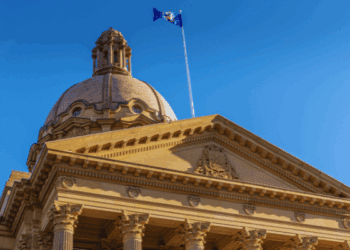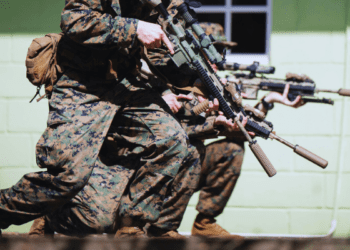In the Ottawa Citizen, MLI managing director Brian Lee Crowley writes that the “scandal” involving accusations of Canadian electronic spying on trading partner Brazil appears to be “a damp squib”. “Even if there is more convincing evidence than this of Canada’s spying to come, so what?” writes Crowley. “I am comforted, not alarmed, that the government of Canada might want to know what our friends, competitors and enemies are doing that might affect our interests.”
You call that a spy scandal?
In the grand scheme of geopolitics, Canada can feel a bit out of the way. The “great game,” pitting great powers against each other in a largely covert struggle for power, is more likely to be played out in hot spots like Afghanistan or the Middle East, or contested areas of influence like Cuba or eastern Europe.
Spy scandals are thus few and far between here at home. My favourite was the Gerda Munsinger sex and spying scandal of the 1960s, immortalized by comedian Don Harron’s alter ego Charlie Farquharson. He brilliantly deadpanned how he wished he’d been there “to see Gerda Munsinger present her briefs to Parliament.”
But now, lo and behold, we have a fresh spy scandal brewing and this time it is Canada alleged to be doing the spying on gallant little Brazil. The Brazilian media have broken the story and now the Leader of the Opposition in Ottawa, Thomas Mulcair, is decrying this country’s bad behaviour. How exciting!
Except that as spy scandals go — based on what we know now — this one seems a damp squib.
First, the evidence: Globo, a Brazilian television chain, broadcast a segment alleging Canadian spying on, among others, the country’s ministry of natural resources. Their claim seems largely based on a PowerPoint document used by an unidentified Canadian at a meeting of western intelligence agencies and later released by rogue American intelligence analyst Edward Snowden. Snowden now lives in exile in Russia.
The Communications Security Establishment Canada (CSEC) document suggests Canada may (repeat “may”) have monitored the communications of some Brazilian government officials in the natural resource field.
Got that? The scandal so far is that an agency of Ottawa’s may or may not have monitored Brazilian government officials’ communications; it is not even clear if they might have listened in or were just collecting data about who they contacted.
What? You mean governments around the world might actually spy on each other? I am shocked!
In response the Brazilian government has puffed itself up like a startled blowfish, claiming that Canada has made mock of the country’s sovereignty.
What tosh. Even if there is more convincing evidence than this of Canada’s spying to come, so what? I am comforted, not alarmed, that the government of Canada might want to know what our friends, competitors and enemies are doing that might affect our interests. Rest assured that other countries are doing this to us. Certainly, Brazil has frequently been accused of this very thing.
Making sure we possess such knowledge is an important part of statecraft, and actually promotes international stability by lessening the chances that a country can do something seriously unexpected or alarming.
What is over the top in this whole story is not the alleged actions of Canada, but Brazil’s reaction. Far from being chuffed that they are now important enough to be spied on, they have climbed as high as they can on their dignity and made a spectacle of themselves.
Canada is merely a bit player in Brazil’s psychodrama. Brasilia was already atwitter with the much juicier Snowden revelations that the U.S. has possibly been spying on Brazil as well. And not just on lowly officials but the Brazilian president, Dilma Rousseff.
This has touched a nerve among Brazilians and driven Rousseff to cancel hurriedly the planned visit of U.S. President Barack Obama.
Obama has probably got over the shock already. Brazil, by contrast, will be embarrassed by its behaviour for years, and Americans won’t soon forget such discourteous treatment of their president over a non-issue of these non-dimensions.
Meanwhile, back in Canada critics of the security establishment are attempting to widen the “scandal” by pointing out that that CSEC’s sister agency, the Canadian Security and Intelligence Service (CSIS) has meetings with companies responsible for Canada’s critical infrastructure, like pipelines.
Without quite saying so, the implication is that these meetings are evidence Canada is spying on foreign natural resource industries and then passing along this information to their competitors back home.
Actually one of the greatest national security challenges this country faces is how to protect critical infrastructure that crosses Canada’s many vast and unpopulated regions, infrastructure that could easily be crippled by a pickup truck loaded with primitive explosives. If CSIS and those companies were not meeting on a regular basis to determine how best to protect these precious investments, both the companies and the governments would be grossly derelict in their duties.
Moreover, our intelligence services are specifically prohibited from sharing internationally-gathered intelligence outside government, so that is not what these meetings are about.
Please, if we’re going to have a spy scandal, couldn’t it be a real one, preferably with briefs?
Brian Lee Crowley (twitter.com/brianleecrowley) is the Managing Director of the Macdonald-Laurier Institute, an independent non-partisan public policy think tank in Ottawa: www.macdonaldlaurier.ca




